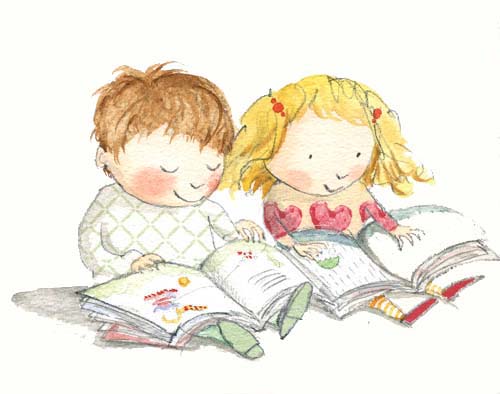 However, the problem is that we cannot teach
children to like poetry, they must learn to do so themselves. In order to
foster students to appreciate poetry, the teacher must provide the appropriate
atmosphere: he must be able to teach students that poetry is not boring; he
must be able to open up a new world to them… the magical world of words, and
help them discover the world around them through their senses. In order to do
so, it is essential that the teacher loves poetry himself, so that he can show
that to his students. It is also very important that he plans activities in
advance and provides students with the appropriate material.
However, the problem is that we cannot teach
children to like poetry, they must learn to do so themselves. In order to
foster students to appreciate poetry, the teacher must provide the appropriate
atmosphere: he must be able to teach students that poetry is not boring; he
must be able to open up a new world to them… the magical world of words, and
help them discover the world around them through their senses. In order to do
so, it is essential that the teacher loves poetry himself, so that he can show
that to his students. It is also very important that he plans activities in
advance and provides students with the appropriate material.jueves, 28 de noviembre de 2013
Poetry in Education
What is poetry? Poetry comes from Latin poesis. It is a manifestation of beauty
or aesthetic feeling through words, whether verse or prose. Poetry is a fun way
of teaching sensitivity and aesthetic taste, while helping students to understand
the world we live in. Through poetry we foster communicative, linguistic,
cultural and social skills, which are all very important in children
development.
 However, the problem is that we cannot teach
children to like poetry, they must learn to do so themselves. In order to
foster students to appreciate poetry, the teacher must provide the appropriate
atmosphere: he must be able to teach students that poetry is not boring; he
must be able to open up a new world to them… the magical world of words, and
help them discover the world around them through their senses. In order to do
so, it is essential that the teacher loves poetry himself, so that he can show
that to his students. It is also very important that he plans activities in
advance and provides students with the appropriate material.
However, the problem is that we cannot teach
children to like poetry, they must learn to do so themselves. In order to
foster students to appreciate poetry, the teacher must provide the appropriate
atmosphere: he must be able to teach students that poetry is not boring; he
must be able to open up a new world to them… the magical world of words, and
help them discover the world around them through their senses. In order to do
so, it is essential that the teacher loves poetry himself, so that he can show
that to his students. It is also very important that he plans activities in
advance and provides students with the appropriate material.
 However, the problem is that we cannot teach
children to like poetry, they must learn to do so themselves. In order to
foster students to appreciate poetry, the teacher must provide the appropriate
atmosphere: he must be able to teach students that poetry is not boring; he
must be able to open up a new world to them… the magical world of words, and
help them discover the world around them through their senses. In order to do
so, it is essential that the teacher loves poetry himself, so that he can show
that to his students. It is also very important that he plans activities in
advance and provides students with the appropriate material.
However, the problem is that we cannot teach
children to like poetry, they must learn to do so themselves. In order to
foster students to appreciate poetry, the teacher must provide the appropriate
atmosphere: he must be able to teach students that poetry is not boring; he
must be able to open up a new world to them… the magical world of words, and
help them discover the world around them through their senses. In order to do
so, it is essential that the teacher loves poetry himself, so that he can show
that to his students. It is also very important that he plans activities in
advance and provides students with the appropriate material.
Suscribirse a:
Entradas (Atom)
